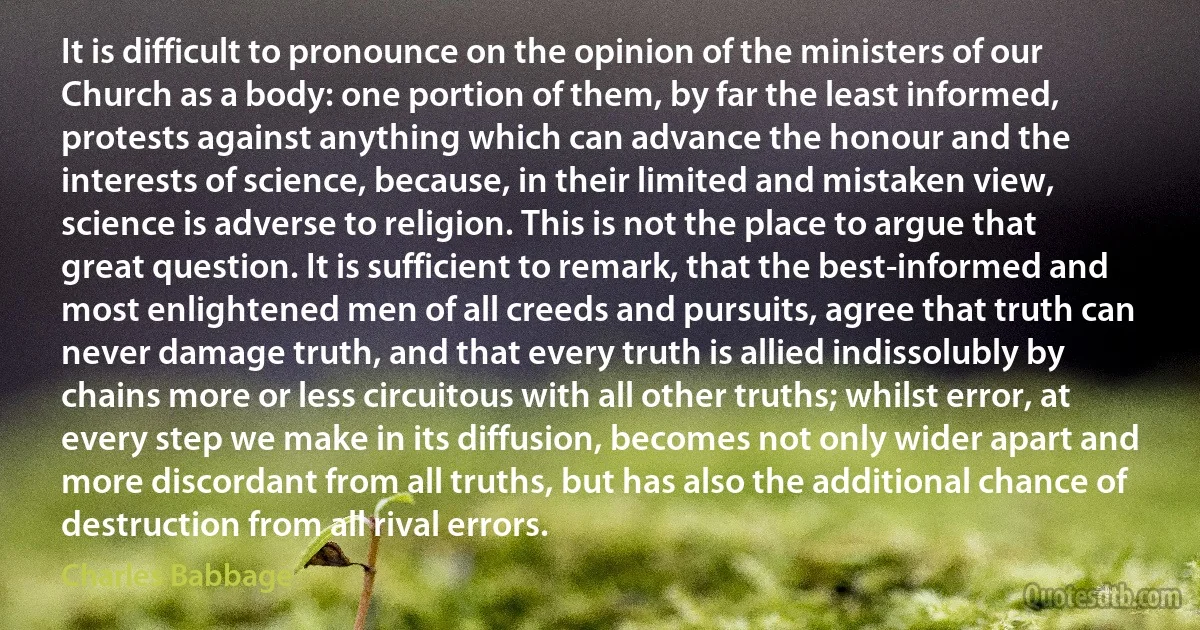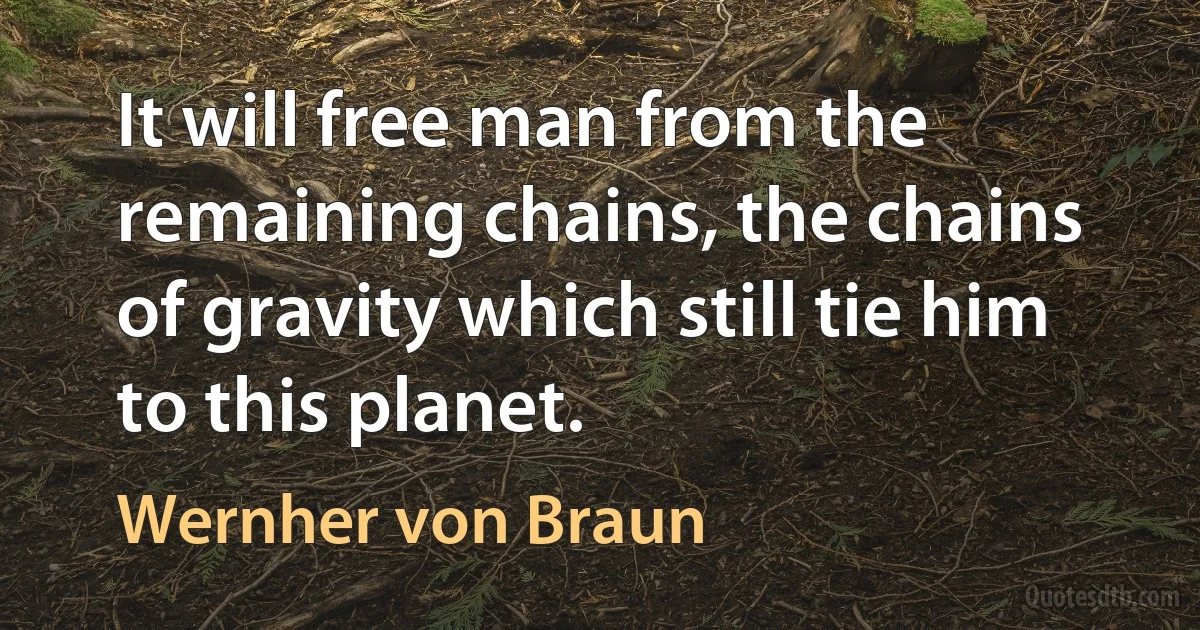Chains Quotes - page 7
We call ourselves a workers' party because we want to free labor from the chains of capitalism and Marxism. In battling for Germany's future, we freely admit to it, and accept the odium from the liberal bourgeoisie that results. We know that we will succeed in bringing new blessings out of their curses.

Joseph Goebbels
That's what real love amounts to - letting a person be what he really is. Most people love you for who you pretend to be. To keep their love, you keep pretending - performing. You get to love your pretence. It's true, we're locked in an image, an act - and the sad thing is, people get so used to their image, they grow attached to their masks. They love their chains. They forget all about who they really are. And if you try to remind them, they hate you for it, they feel like you're trying to steal their most precious possession.

Jim Morrison
In the history of madness, two events signal this change with singular clarity: in 1657, the founding of the Hôpital Général, and the Great Confinement of the poor; and in 1794, the liberation of the mad in chains at Bicêtre. Between these two singular and symmetrical events, something happened, whose ambiguity has perplexed historians of medicine: blind repression in an absolutist regime, according to some, and, according to others, the progressive discovery, by science and philanthropy, of madness in its positive truth. In fact, beneath these reversible meanings, a structure was taking shape, which did not undo that ambiguity but was decisive for it. This structure explains the passage from the medieval and humanist experience of madness to the experience that is our own, which confines madness in mental illness.

Michel Foucault
I have seen Christians in Communist prisons with fifty pounds of chains on their feet, tortured with red-hot iron pokers, in whose throats spoonfuls of salt had been forced, being kept afterward without water, starving, whipped, suffering from cold--and praying with fervor for the Communists. This is humanly inexplicable! It is the love of Christ, which was poured out in our hearts.

Richard Wurmbrand
[...] we can strip off all grammatical clues to sentence structure, all affixes and prepositions, and yet still achieve communication. Thus restricted to nouns, simple "stories" can be told in word chains: Woman, street, crowd, traffic, noise, haste, thief, bag, loss, scream, police.... Again, the reader's past experience of his language is sufficient to restore the missing elements, sufficiently accurately for the purpose. But of course, not only does the reader have experience of sentence structure, enabling him to supply the missing syntactical elements, but also he has experience of typical contexts in which the various words are used; many words bear an aura about with them. It might be more difficult to tell a tale about a policeman who robbed a woman, for instance, with so little redundancy!

Colin Cherry
For nearly five hundred years, these rules and theories of an Arab Shaikh and the interpretations of generations of lazy and good-for-nothing priests have decided the civil and criminal law of Turkey. They have decided the form of the Constitution, the details of the lives of each Turk, his food, his hours of rising and sleeping the shape of his clothes, the routine of the midwife who produced his children, what he learned in his schools, his customs, his thoughts-even his most intimate habits. Islam – this theology of an immoral Arab – is a dead thing. Possibly it might have suited tribes in the desert. It is no good for modern, progressive state. God's revelation! There is no God! These are only the chains by which the priests and bad rulers bound the people down. A ruler who needs religion is a weakling. No weaklings should rule.

Mustafa Kemal Atatürk
Those who think Roman slavery was such a benign institution have not explained why fugitive slaves were a constant problem. Owners did not lightly countenance the loss of valuable property. They regularly used chains, metal collars, and other restraining devices. Slaves who fled were hunted down and returned to irate masters who were keen to inflict a severe retribution.

Michael Parenti



